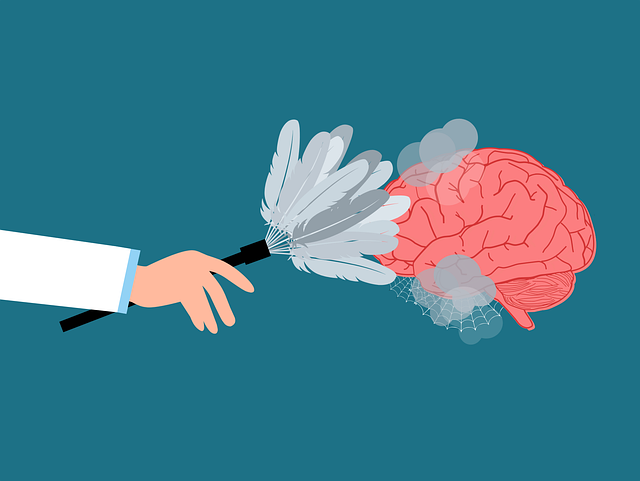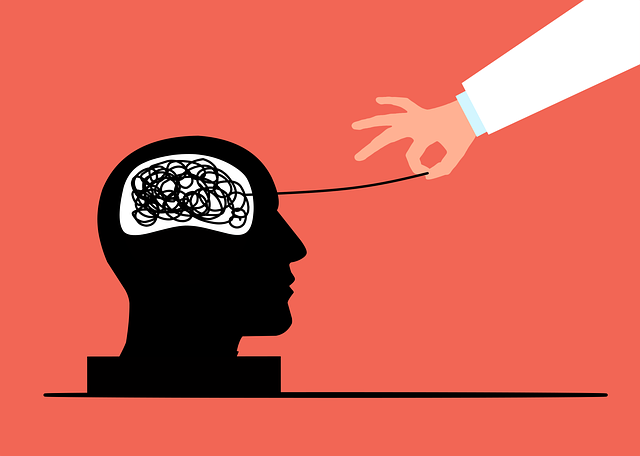Littleton German Speaking Therapy leverages data-driven insights for personalized, culturally sensitive mental health care. By analyzing psychological trends and patterns in a diverse patient population, therapists employ evidence-based practices like Compassion Cultivation and Mindfulness Meditation to tailor treatments effectively. This approach, combined with advanced analytics, allows for the identification of unique cultural needs, leading to specialized programs like Social Skills Training and Cultural Competency Training. Through interpretation techniques that blend precision and empathy, the therapy center ensures data benefits patient care directly, resulting in improved outcomes, increased engagement, and enhanced emotional well-being for every individual.
“Unveiling the power of data in mental health care, this article explores innovative strategies and their potential impact. We delve into the process of understanding intricate mental health data, highlighting unique approaches like Littleton German Speaking Therapy—a cultural perspective on data collection. By analyzing trends, therapists can tailor treatments effectively. Interpretation techniques transform raw numbers into actionable insights, leading to enhanced patient outcomes. Discover how data-driven strategies, including case studies from Littleton German Speaking Therapy, are revolutionizing therapeutic practices.”
- Understanding Mental Health Data: The Foundation of Effective Therapy
- Littleton German Speaking Therapy: A Cultural Approach to Data Collection
- Analyzing Trends: Uncovering Insights for Personalized Treatment Plans
- Interpretation Techniques: From Numbers to Meaningful Change
- Enhancing Patient Outcomes: Implementing Data-Driven Strategies
Understanding Mental Health Data: The Foundation of Effective Therapy

Understanding Mental Health Data is a cornerstone for providing effective therapy, particularly within the context of Littleton German Speaking Therapy. By meticulously analyzing patterns and trends within an individual’s psychological landscape, therapists gain valuable insights into their client’s thoughts, emotions, behaviors, and coping mechanisms. This data-driven approach allows for a more personalized treatment plan tailored to address specific needs, rather than applying a one-size-fits-all strategy.
Through this analysis, therapists can identify risk factors, diagnose conditions, track progress over time, and adjust therapeutic interventions accordingly. Techniques like Compassion Cultivation Practices and Mindfulness Meditation, for instance, have been shown through research to be beneficial in reducing anxiety and depression, and data analysis helps professionals determine their effectiveness on an individual level. Ultimately, understanding mental health data enables therapists to foster a more supportive and targeted environment, boosting client confidence and facilitating positive outcomes.
Littleton German Speaking Therapy: A Cultural Approach to Data Collection

In the context of mental health data analysis, understanding cultural nuances is paramount. Littleton German Speaking Therapy offers a unique perspective by focusing on the rich cultural heritage of its practitioners and clients. This approach ensures that therapy sessions are not just linguistic exchanges but immersive experiences tailored to individual needs within the framework of their cultural identities. By incorporating elements of self-care routine development for better mental health, compassion cultivation practices, and empathy building strategies, this therapy model enhances the effectiveness of treatment.
The integration of German-speaking therapists facilitates a deeper connection as it allows clients to express themselves authentically in their native tongue. This cultural sensitivity encourages open dialogue, making it easier to explore complex emotional issues and implement tailored interventions. Through this approach, Littleton German Speaking Therapy not only provides specialized care but also fosters an environment where mental health support is accessible and comforting within the context of a client’s cultural background.
Analyzing Trends: Uncovering Insights for Personalized Treatment Plans

In the realm of mental health data analysis, identifying trends within patient populations is akin to unraveling a tapestry. By employing sophisticated statistical methods and exploring various datasets, healthcare professionals can uncover hidden patterns and insights that are pivotal for personalized treatment planning. This process involves meticulous examination of demographic factors, symptoms, treatment responses, and recovery trajectories. For instance, at Littleton German Speaking Therapy, analysts might discover distinct trends among patients who speak German as their primary language, requiring tailored interventions that resonate with their cultural nuances.
Such analysis empowers healthcare providers to transcend generic care. It facilitates the design of Mental Health Education Programs that cater to specific needs, whether it’s implementing Social Skills Training for adolescents or enhancing Healthcare Provider Cultural Competency Training to address diverse patient backgrounds. By understanding trends, therapists can personalize treatment plans, ensuring that each patient receives the most effective and culturally sensitive support possible.
Interpretation Techniques: From Numbers to Meaningful Change

Interpretation techniques play a pivotal role in transforming raw mental health data into actionable insights that can drive meaningful change. It’s not merely about crunching numbers but understanding the context, cultural nuances, and individual experiences reflected in the data. At Littleton German Speaking Therapy, we employ sophisticated analytics while grounding our approach in empathy and cultural competency. This dual focus ensures that data interpretation is not just accurate but also profoundly impactful.
Through comprehensive Healthcare Provider Cultural Competency Training, we equip professionals with the tools to navigate diverse patient backgrounds, encompassing emotional well-being promotion techniques tailored to specific cultural needs. By integrating these insights into practice, we enhance emotional regulation strategies, ultimately fostering more effective therapy and improved outcomes for all individuals seeking support.
Enhancing Patient Outcomes: Implementing Data-Driven Strategies

At Littleton German Speaking Therapy, we recognize that mental health is a complex and multifaceted issue. Enhancing patient outcomes requires more than traditional therapeutic approaches; it demands a data-driven strategy that leverages the power of analysis. By implementing evidence-based practices grounded in robust data interpretation, our therapists can tailor interventions to meet individual needs more effectively. This personalized approach not only improves treatment efficacy but also fosters better engagement and adherence among patients.
Data-driven strategies enable us to identify trends, track progress, and adjust treatments as needed. For instance, we might use data to uncover specific triggers for anxiety or depression, leading to the implementation of tailored stress reduction methods. Additionally, analyzing patient feedback can help us develop confidence-boosting techniques that align with Mind Over Matter principles, empowering individuals to take control of their mental well-being. Ultimately, these strategies aim to empower patients, offering them the tools and insights needed to navigate their mental health journeys more competently.
Mental health data analysis is no longer a niche practice; it’s a game-changer in healthcare. As evidenced by the success of Littleton German Speaking Therapy, integrating cultural approaches into data collection enhances patient understanding and treatment outcomes. By analyzing trends and employing effective interpretation techniques, mental health professionals can create personalized plans that drive meaningful change. This data-driven strategy not only improves individual lives but also contributes to a more comprehensive and effective mental healthcare system.














